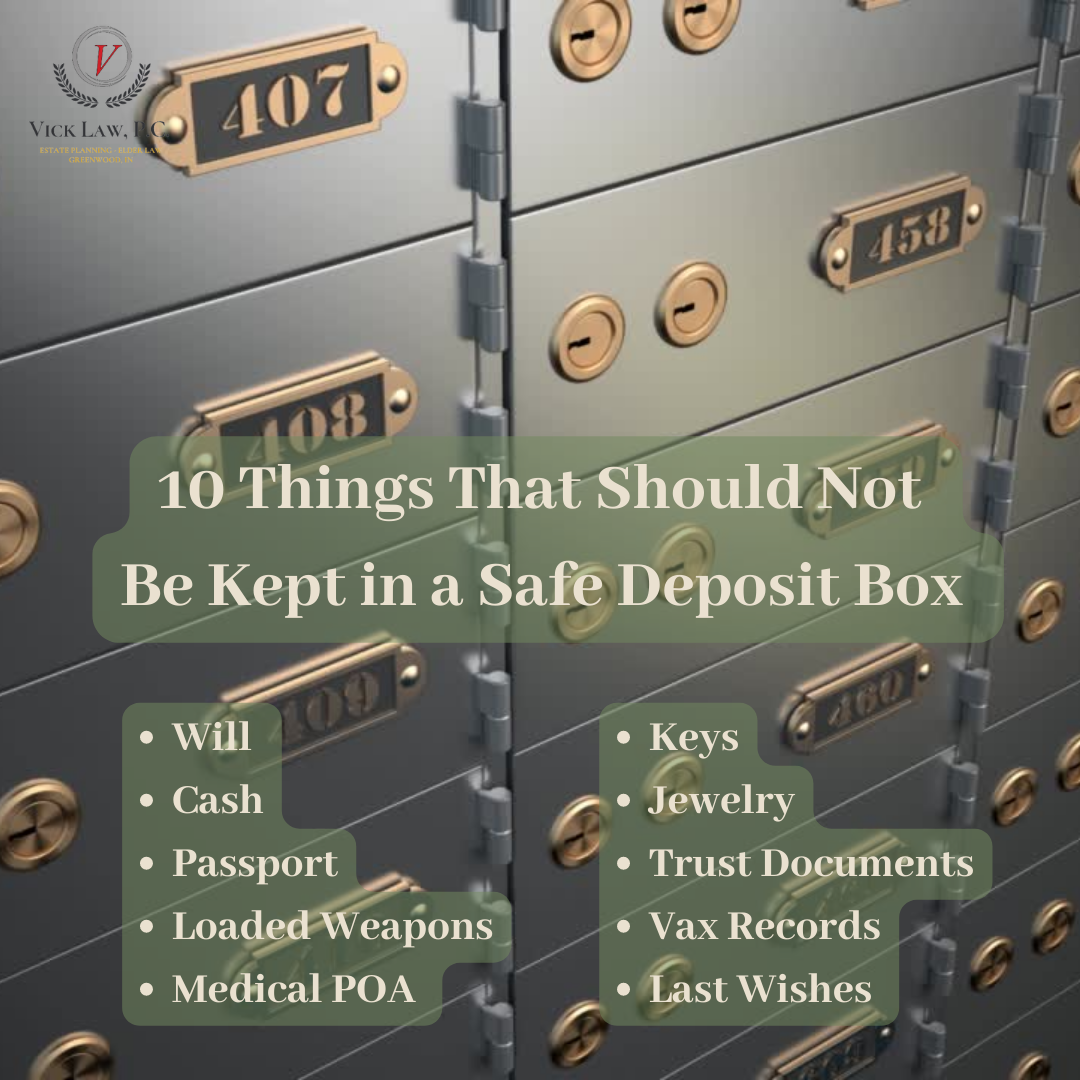A safe deposit box can be used to store important documents and items. It’s essential if you own gold or other valuables, and can be helpful in reducing the worry of owning different kinds of assets, according to a recent article titled “10 Items You Should Never Keep In a Safe Deposit Box” from yahoo! finance.
However, many documents should never be kept in a safe deposit box, even when it seems as if it’s the perfect spot.
- Your will should never, ever, be placed in a safe deposit box. When a person dies, the only person who can access the safe deposit box are those who are also owners of the box according to bank records and those individuals named in the will itself.
- Don’t use your safety deposit box to stash cash. Unless your cash contains collectible bills or coins, this is not the place for it. An investment fund or, at the very least, an interest-bearing savings account, is a better option. Stashing cash may have made sense during the Great Depression, but not today.
- Keys to anything of importance don’t belong in your safe deposit box. You are likely to need them when you can’t get into the bank’s vault, and you may forget their location. If you die and no one knows where the keys are and can’t get into the safe deposit box, you’ll be remembered as the person who made life harder for everyone.
- Unless you own the Hope Diamond or jewelry like it, your jewelry doesn’t belong locked up in an airless safe deposit box. If you do have irreplaceable jewelry and don’t want it kept at home, make sure it’s insured. Most banks don’t automatically insure items in a safe deposit box.
- Trust documents are in the same category as a will. If they are in a safe deposit box and the person who owns the box dies or becomes incapacitated, the only way to gain access will be to be listed on the documents—which will be in the safe deposit box. Keep them in a safe at home or on file with the elder lawyer who created them for you.
- A Medical Power of Attorney won’t do you any good, if it’s secured in a safe deposit box. If someone needs these documents in an emergency situation, they need to be where you are and easily accessible. There’s no downside to having too many copies of a medical POA. Keep at least one in the house, give one to the person who is designated on the document, one to your primary care physician and one or more to loved ones who live nearby.
- Passports are more likely to be needed and not retrievable from a safe deposit box than they are to be stolen from home. They are far more likely to be stolen when you are travelling, especially overseas.
- Your COVID-19 vaccination card is going to be needed from time to time, so it’s best in a desk drawer, on the refrigerator or in your wallet.
- Loaded weapons, liquids, and explosives. If you can’t take it on an airplane, you should not keep it in a safe deposit box.
- Directions to loved ones about anything of importance should be kept at home and people who are expected to follow your instructions should be told where they are located. If a safe deposit box is sealed, and most are at death, a funeral or memorial service may be a distant memory by the time the instructions are read.
Bottom line: important documents belong in our home in a waterproof, fire safe box. Tell loved ones where the box is located and where they can find the keys. An estate planning lawyer may also be able to help you to create a plan for your important documents and materials. Contact Vick Law, P.C. today to discuss and create a plan for you.
Reference: yahoo! finance (Aug. 2, 2022) “10 Items You Should Never Keep In a Safe Deposit Box”

